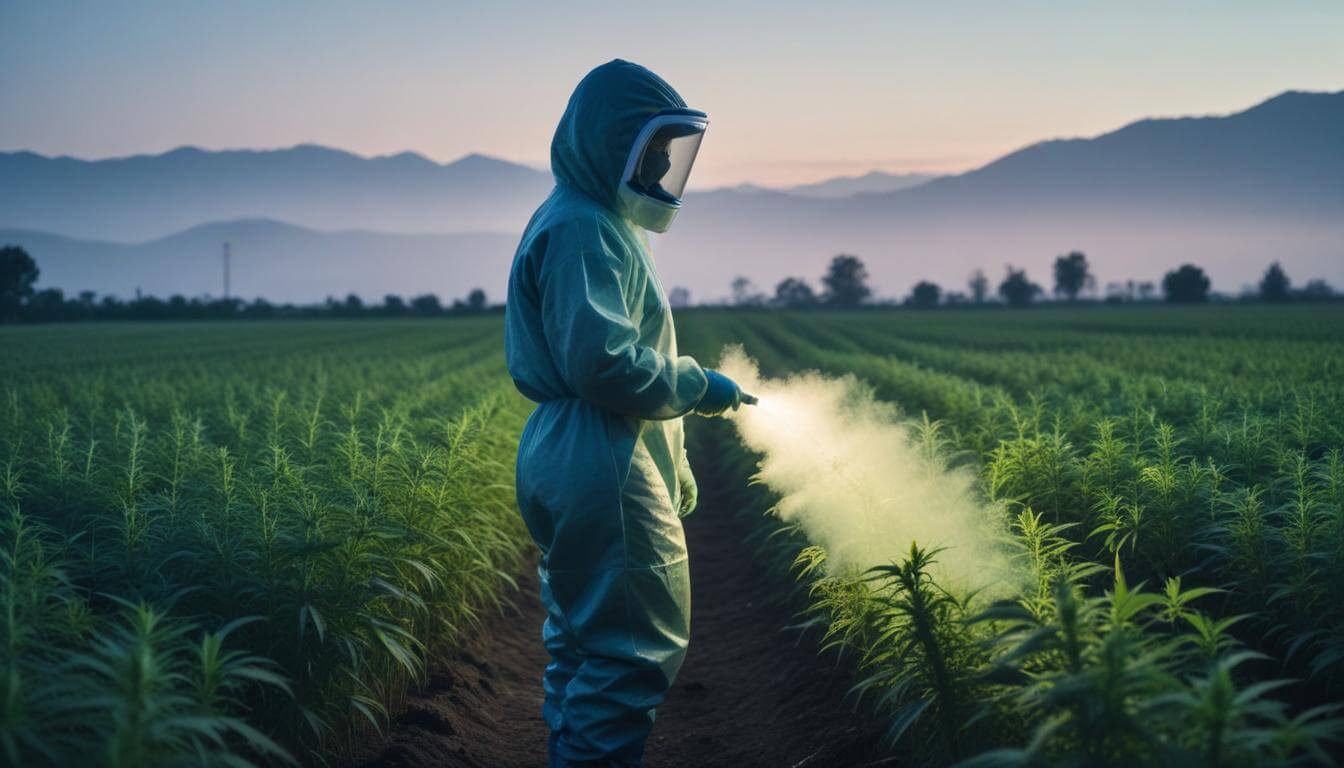The California cannabis industry is grappling with the impacts of a significant pesticide scandal that has undermined consumer confidence. Key players, including brands, retailers, and testing laboratories, are taking proactive steps to ensure product safety and regain customer trust.
Independent testing initiatives by retailers
Retailers have been leading efforts to enhance product safety following reports of pesticide contamination. For instance, Catalyst Cannabis Co. in Long Beach has initiated independent lab tests to evaluate potentially contaminated products. These tests aim to trace the source of contamination and prevent tainted goods from reaching consumers.
Catalyst Cannabis Co.’s strict testing protocols
Elliot Lewis, CEO of Catalyst Cannabis Co., emphasized the company’s focus on pre-rolls and vapes due to their higher risk of contamination. By implementing rigorous testing procedures, Catalyst ensures that only safe, high-quality cannabis products reach its shelves. The company is also prepared to publicly call out any brands or distributors supplying contaminated products and may even sever business relationships if necessary.
West Coast Cure’s comprehensive quality control
Similarly, West Coast Cure conducts extensive lab tests on all its products before they hit the market. It also carries out additional quality control assessments on sourced materials and returns any items that fail to meet its standards. These efforts underscore the company’s commitment to delivering safe, reliable consumer products.
The role of the Department of Cannabis Control
As the primary regulatory body for marijuana in California, the Department of Cannabis Control (DCC) faces scrutiny over its handling of the pesticide issue. Reports indicating that some regulated products surpass safety thresholds set by the U.S. Environmental Protection Agency have sparked criticism from various industry sectors.
Challenges faced by regulators
The DCC must balance stringent safety standards with the operational realities of license holders. Ensuring consistent project compliance while addressing the concerns of both consumers and industry stakeholders presents an ongoing challenge for the regulator.
Industry responses to regulatory shortcomings
In light of these challenges, industry participants are urging enhanced communication and collaboration between regulators and businesses. By working together, they hope to establish more effective safeguards and create a robust regulatory framework that prioritizes consumer health and safety.
Consumer confidence and brand loyalty
The pesticide scandal has led many consumers to question the reliability of products within California’s regulated cannabis market. Some customers are exploring alternative brands or seeking in-house certifications based on thorough testing results to ensure they receive safe products.
Shifts in consumer behavior
With rising concerns about product contamination, consumers are becoming increasingly selective about the brands they support. Companies offering transparent information about their testing practices and quality control measures are likely to gain favor among discerning customers.
Building trust through education and transparency
Educating consumers about the importance of lab testing and effective quality control measures can help restore confidence in the marketplace. Brands that communicate openly about their safety protocols and demonstrate commitment to product integrity will be better positioned to win back consumer trust.
Enhanced lab testing standards
In response to the crisis, the industry focuses on tightening lab testing standards to detect contaminants more effectively and ensure product safety. By raising the bar for testing practices, stakeholders aim to safeguard consumers’ well-being and uphold the regulated market’s reputation.
Implementing advanced testing methods
Adopting state-of-the-art testing technology and methodologies is critical for accurately identifying potential contaminants. Laboratories invest in sophisticated equipment and train staff to conduct comprehensive evaluations that meet or exceed regulatory requirements.
Standardizing testing procedures
Industry leaders advocate for standardized testing procedures across different labs to ensure consistency and reliability in results. Harmonizing testing protocols helps build a uniform framework that bolsters consumer confidence in the safety of cannabis products available in the market.
The California cannabis industry is undergoing significant changes as it tackles the fallout from pesticide contamination. By prioritizing independent lab tests, enhancing collaboration with regulators, educating consumers, and standardizing testing practices, the sector seeks to restore trust and ensure the long-term viability of the regulated market. As these efforts continue, consumers can expect greater transparency and improved safety standards from trusted cannabis providers.





